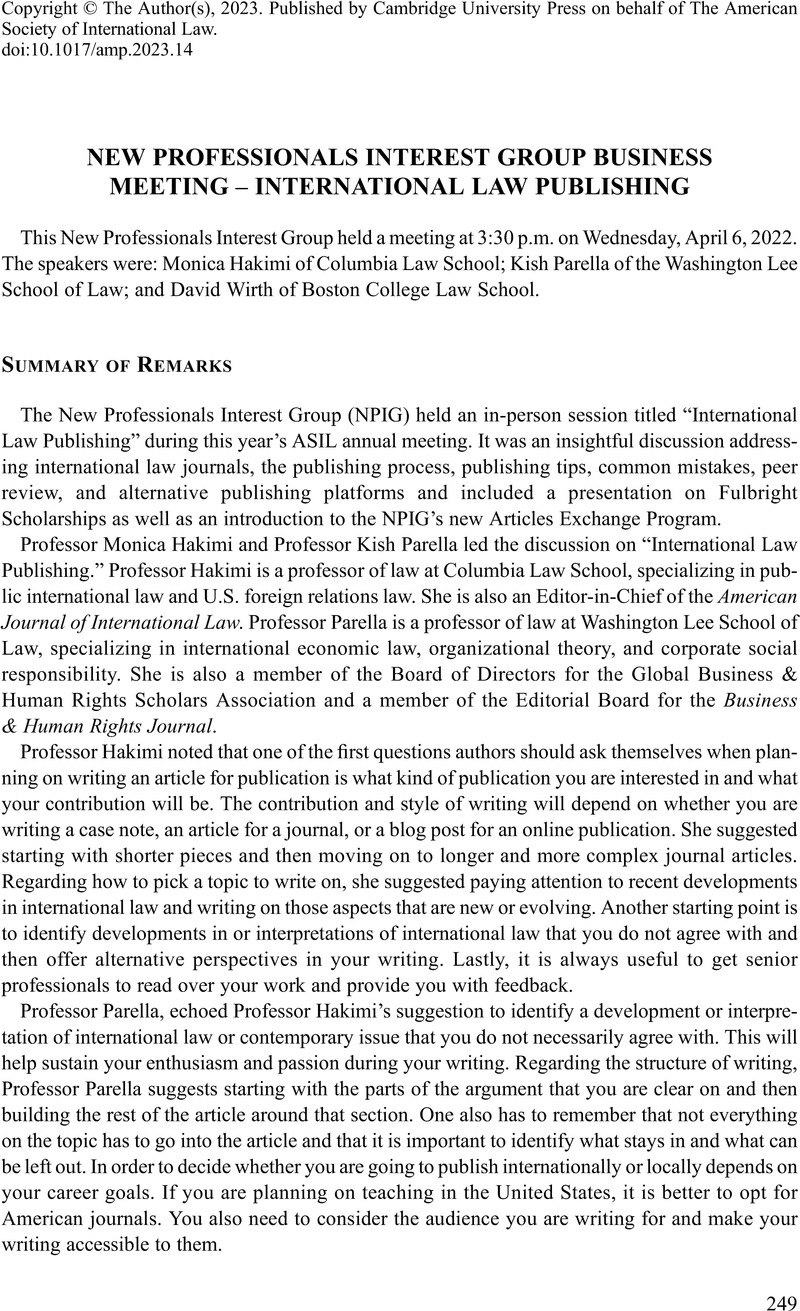No CrossRef data available.
Published online by Cambridge University Press: 24 March 2023

This New Professionals Interest Group held a meeting at 3:30 p.m. on Wednesday, April 6, 2022. The speakers were: Monica Hakimi of Columbia Law School; Kish Parella of the Washington Lee School of Law; and David Wirth of Boston College Law School.